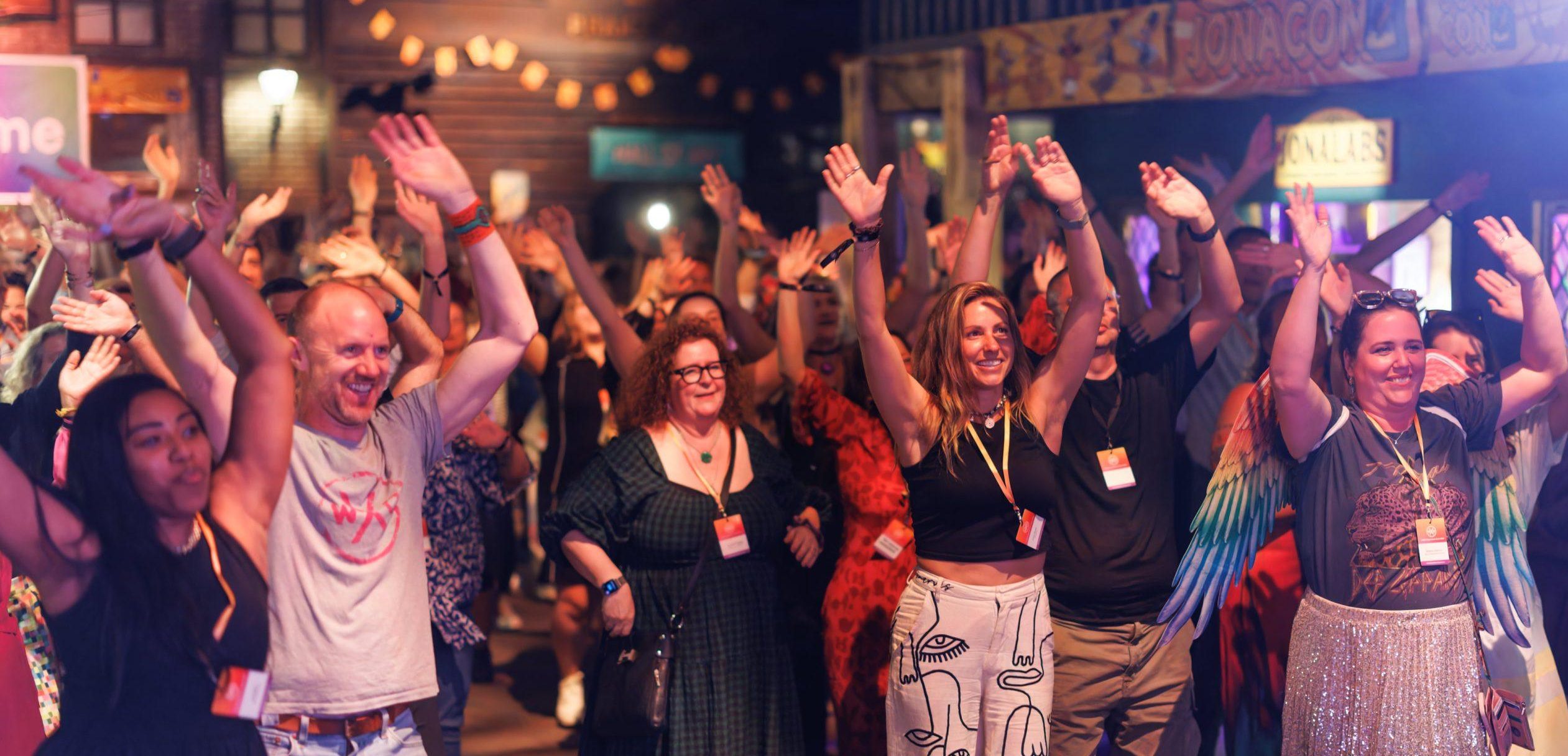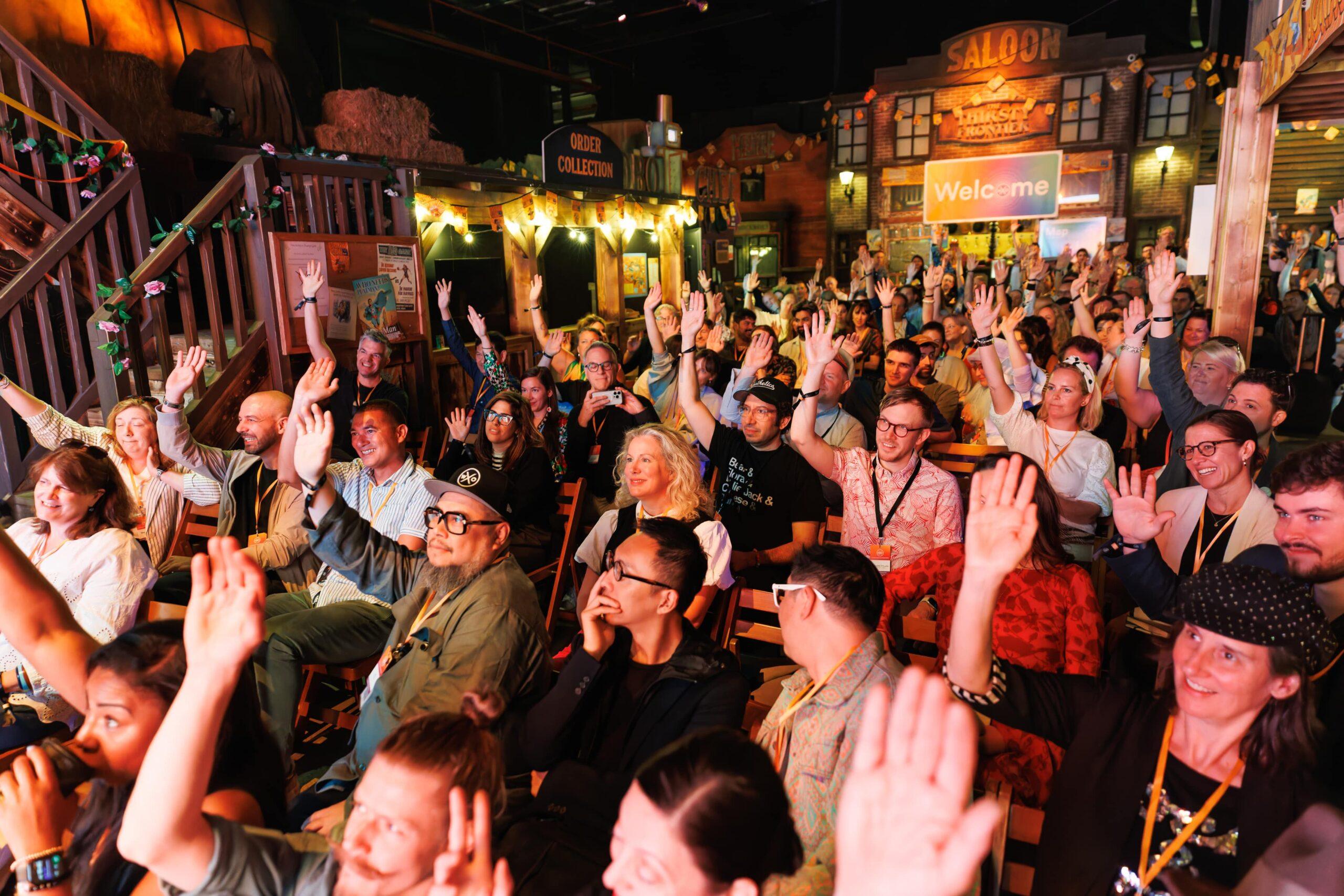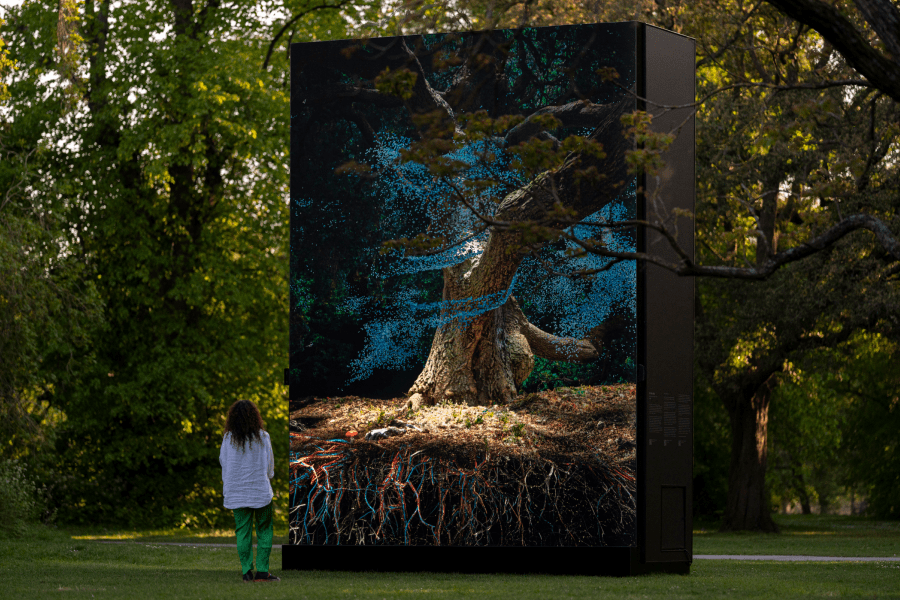- The Royal Shakespeare Company’s new virtual production is a live, public experiment in co-creation, personalisation and collaboration.
- Some experience experts, including a few WXO Co-Founders, share their thoughts on what we can all learn from this brave new experiment.
- We think that if one of the world’s most established theatre companies can pivot from IRL to URL, so can the rest of us.
- [4-min read]
EVER SINCE THE PANDEMIC began, the great dilemma for experience creators has been: how can we design virtual performances that are just as engaging as in-person ones?
WIth audiences trapped at home and behind their screens for almost a year now, brands and businesses have been trying to find new, mostly digital, ways to connect with them. The results range from the dismal – think of that glitchy, 30-way Zoom panel you endured in April – to the divine. Consider, for instance, our article Alice in Zoomland about a virtual play.
We think the creators and producers who make their audience feel like not only spectators, but also an essential part of the experience, are the ones who are capitalising on the potential – rather than pitfalls – of this move from IRL to URL. The Royal Shakespeare Company’s new immersive online production, Dream, sounds like a masterclass in point.
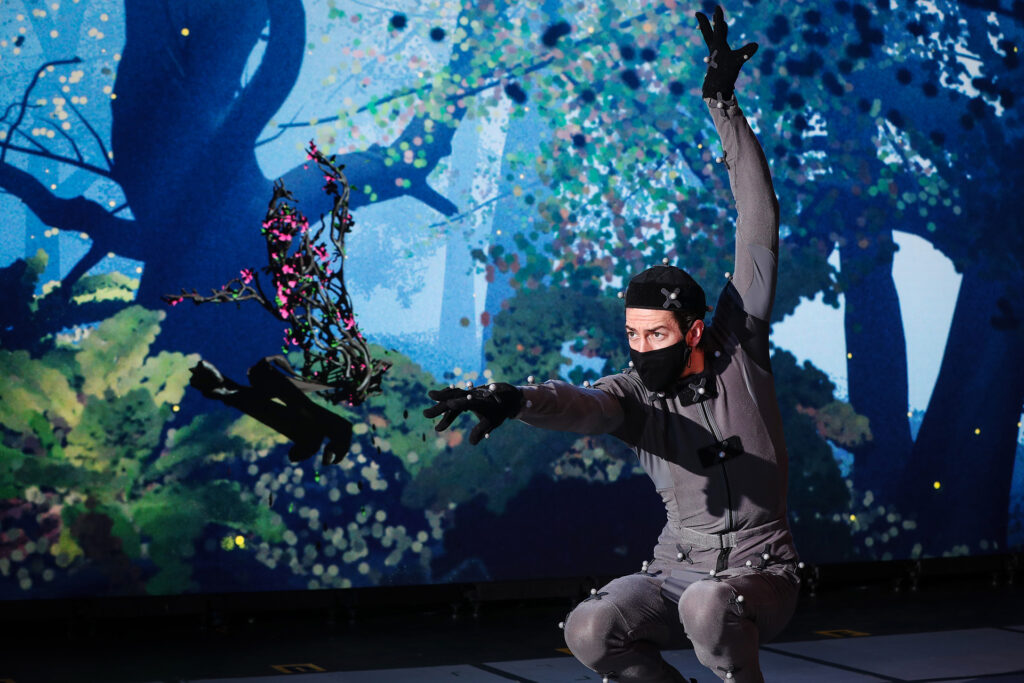
Inspired by William Shakespeare’s A Midsummer Night’s Dream, the show’s actors will be transformed into spectacular supernatural creatures with the help of motion-capture sensors. These will translate their movements into virtual-reality images on screen in real time.
Spectators will have the option of either watching the live action unfold on their devices or purchasing an “Audience Plus” ticket, which will allow them to interact with the characters and even influence the plot.
So what does this mean for experience stagers? We asked a few experts, including Sheena Patel and Noah Nelson from the WXO Founding Circle, what they think.
1. The Best Experiences Are Symbiotic
“The symbiosis between maker, performer and audience,” says Sheena Patel, the founder of immersive experiences pioneer YonderBeyond, “empowers each to contribute to a unique manifestation of the production for each performance.”
“Richer hybrid experiences like these,” Sheena continues, “provide the agency needed for the audience to meaningfully influence and become invested in a narrative before, during and after a location-based experience. They remove the ‘lean back’ element of live streaming a show and facilitate a deeper connection.”
In other words, by partially handing over control to your audience, you can create something far more impactful, long-lasting and meaningful than a mere broadcast of a filmed experience.

2. The Personal Can Be Delivered On A Global Scale
The RSC’s choice of technology makes it possible for them to, as Sheena points out, “deliver personalised experiences at scale in an accessible way, using devices that are already available in each household”. Audiences can choose a degree of interaction that suits them, at a low barrier to participation and from wherever they are in the world.
This brings challenges. “How can we ensure,” Sheena asks, “that the individual feels real satisfaction in contributing to the consensus that informs the narrative progression, and negate any frustration that might arise if their ‘choices’ are in the minority?”
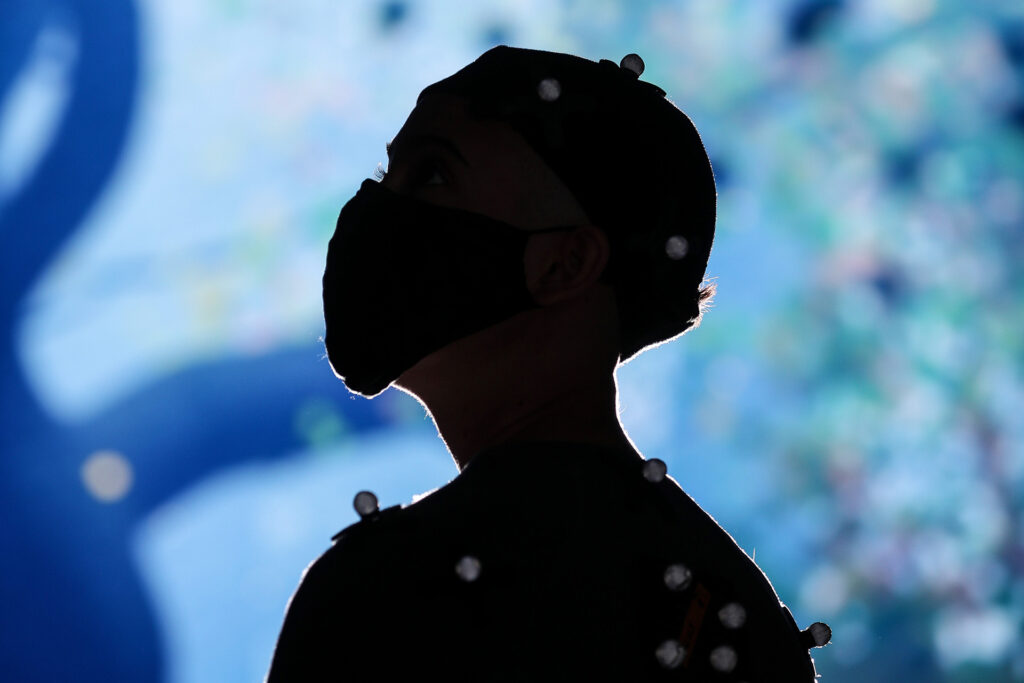
3. Gaming Tech Is A Gateway To New Audiences
The fact that this production borrows some of the conventions of video games means that it will appeal to a different demographic – one that perhaps doesn’t feel particularly spoken to by the rest of the RSC’s offering. Think of it as an alternative way in to Shakespeare’s universe. Hopefully new viewers will like what they see and come back another time.
“The convergence of genres is underway,” says Mark Atkin, the director at immersive media specialists Crossover Labs. “Tech that was developed for games and VR is being used here by a national theatre institution not only for creative expression, but also to connect with audiences in an entirely new way.”
4. Cross-Discipline Collaboration Is Crucial
While the lead producer of Dream is the RSC, the project’s is only possible thanks to the input of a team of organizations including the Philharmonia Orchestra, Marshmallow Laser Feast, virtual reality creators, and Epic Games, developers of the Unreal Engine video games software.
“Games engines are becoming increasingly prevalent as tools for interactive touchpoints in location-based entertainment, and in nimble, iterative film production and in interactive theatre,” says Sheena. “There is currently a skills gap between those native to game engine production and other makers, so collaborations such as Dream are crucial.”
“We must foster more opportunities for iterative, cross-disciplinary work and networks that could enable makers to experiment with immersive tech in a cost-effective way. I’d love to see the day when a creative technologist is a core member of every entertainment, arts and experiences team.”
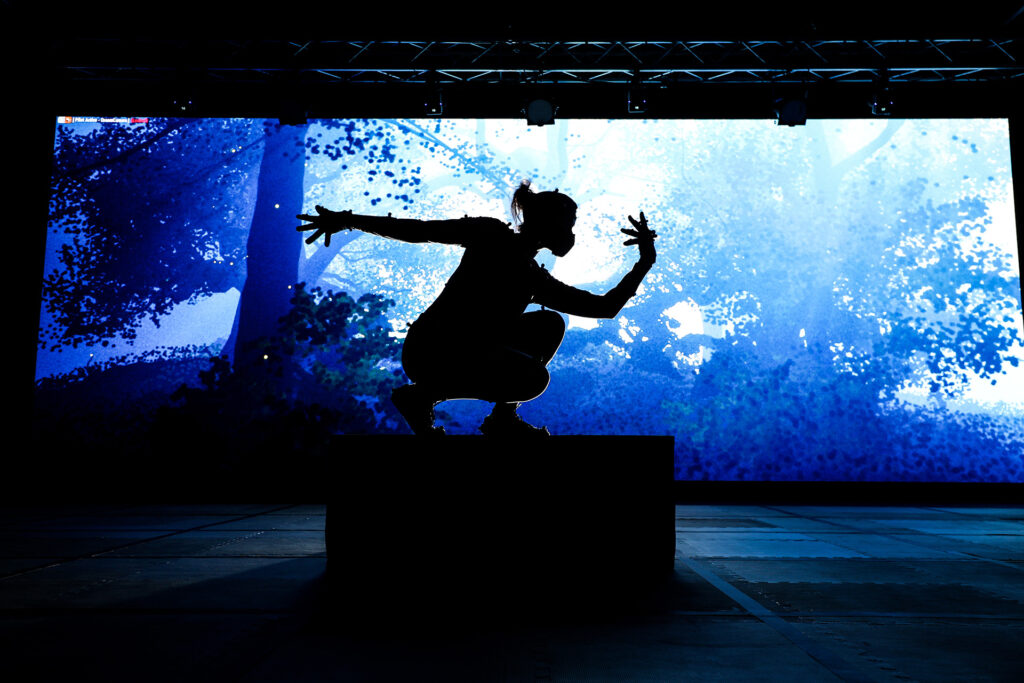
Dream rehearsal. Photo courtesy of RSC
5. Be Like The RSC: Experiment In Public
“The critical thing to remember about the RSC’s Dream,” says Noah Nelson, the founder of the US’s leading immersive organization No Proscenium, “is that it’s an R&D project. We’re lucky that an institution like the RSC is willing to experiment live and in public with technologies that, frankly, we’re all still figuring out how to use.”
“God willing the show itself will be brilliant and inspire more people to experiment,” Noah continues. “But no matter what happens, what’s learned is going to be shared with everyone. Which makes it worth the effort in the first place – and hopefully inspires more cultural institutions to take this kind of risk.”

The WXO Take-Out
Although the use of immersive technologies to translate in-person experiences online is still in its infancy and will play out differently in different sectors, it’s the RSC’s fearlessness to experiment and collaborate that should inspire experience creators across the board.
Our proposal to you – with thanks to Sheena for this suggestion – is:
- Watch it twice.
- One time, buy a £10 ticket and interact.
- The other time, go for free and just watch.
- Then, compare.
We are planning to discuss this further after Dream has run. Click here to book tickets.
To get more insights into the experience economy and be the first to know about our membership programme, events and more, sign up to the WXO community here.



